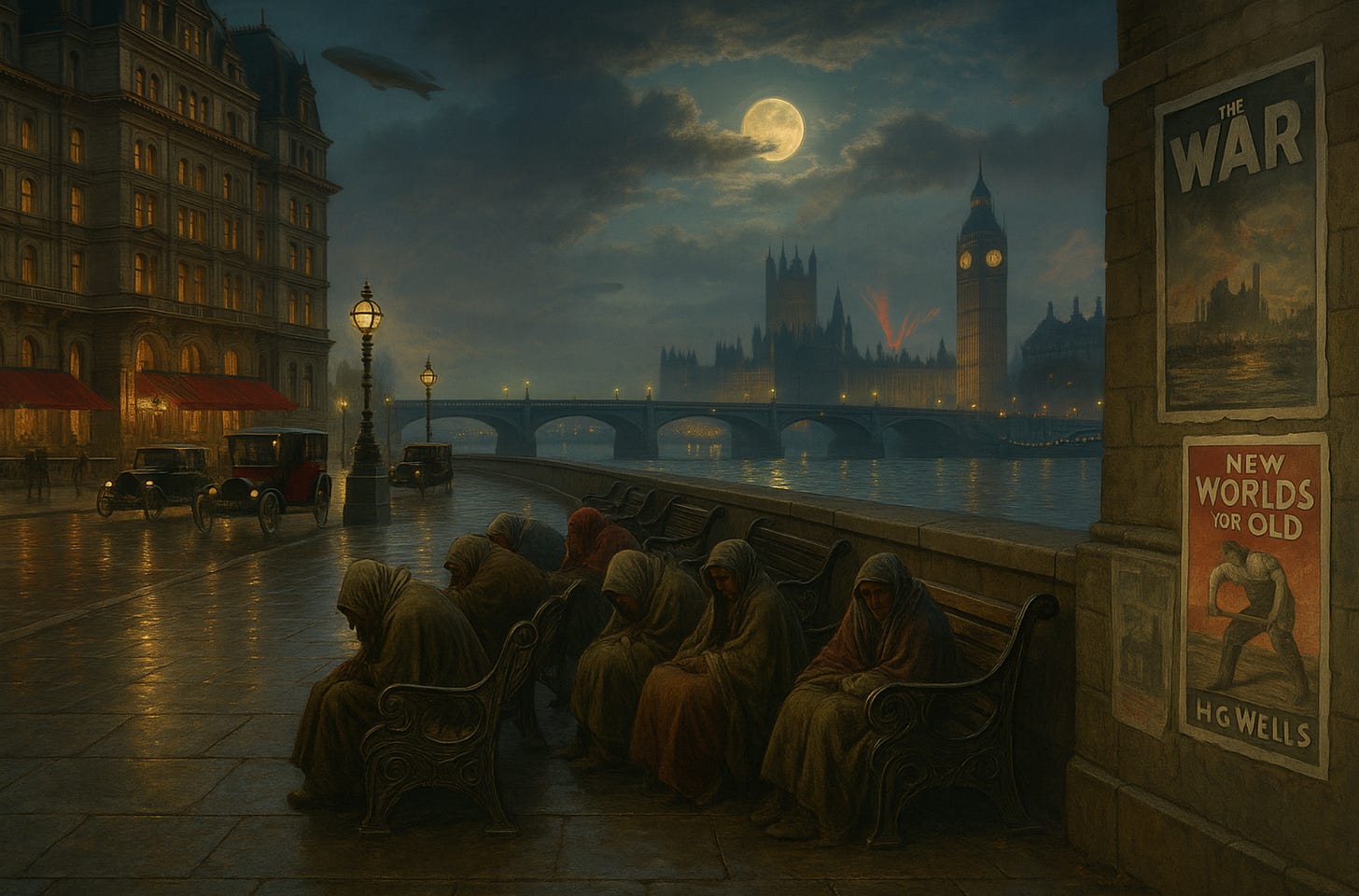The Pseudo-Classical Semi-Liberal Era: The Belle Époque’s Glow, Alas!, Outran Its Reality Over 1870-1914
The Belle Époque felt so golden at the time and feels so in retrospect because expectations surged far beyond the very real progress in prosperity and inclusion. It dazzled with science, finance, and culture—but literacy, longevity, and franchise were still thin. That is precisely why 1914 was so devastating: it showed how all the optimism had rested on a narrow, brittle foundation…
Bohumilo, on the Social Media Site That Must Not Be Named, writes:
Bohumilo: ‘I consider WWI to be the most detrimental event in European history, end of the old, better civilization of high culture and hard money, high hopes for future and hard international order. That’s when everything started going downhill — and nobody really understands why. If I could erase one event from history, it would be WWI. The entire 20th century would have been much better. I still think humanity (or, lets be frank, the West) has never, before or after, combined freedom, prosperity (that’s when economic growth per capita really took off, as @delong showed), and cultural vitality on the scale seen from roughly 1870 to 1914. I always think THE author of that era is H. G. Wells — and the author of the era that followed is Orwell…
Having been name-checked, I guess I should respond. And my response is: This is not right in many ways; but, still, right in one important way.
If we look at the civilizational delta and at civilizational expectations, 1870-1914 was special in a way that those of us who live with the memories of the 1914-1918 Great War and all the shit that landed on us afterwards have never been able to recover.
Bohumilo’s take on the Gilded Age-Belle Époque as a “better civilization of high culture and hard money, high hopes for future and hard international order” is, I think, broadly right in terms of material and what we hoped was civilizational progress, and I will give cultural vitality as well. The era felt golden because expectations surged and the international order seemed stable—until it wasn’t. That mix of real gains plus overconfident optimism is precisely what made tje 1914 break so shattering.
Nevertheless, first, in terms of levels of prosperity: Material prosperity in 1914 was narrow, fragile, and uneven. Vast numbers were short‑lived, hungry, poor, and illiterate—globally and in the “west.” Around 1900, average life expectancy sat in the low 30s due to high mortality at all ages and extreme infant and child deaths; the world did not pass 40 years until well after mid‑century. Literacy was scarce. Estimates suggest global adult literacy in 1900 barely exceeded one‑fifth; mass literacy arrived mostly after 1950.

